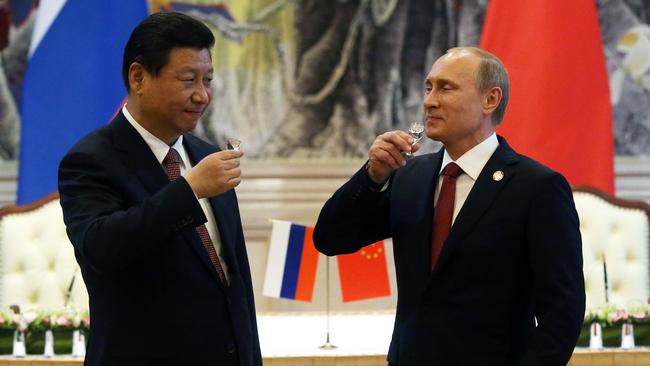Markets blindsided by global power shift
Market players are being caught out by the switch in global power dynamics as Russia and China challenge US dominance.

Nothing illustrated that power shift better than the depressing debate between two poor candidates for the US presidency, which degenerated into a personal slanging match with each candidate saying the other was unfit for office.
And then, by coincidence, Russian President Vladimir Putin followed the debate by further illustrating his power in the once US-dominated oil market.
Given that Putin was a key architect of the production restraint announced by OPEC at the end of September, it was completely certain that Russia — which is not a member of OPEC--- would join in the production reduction (Vladimir Putin is pulling the strings on oil, September 30).
But just as the OPEC cut surprised the US-dominated commodity markets, so did the Russian follow-up. The oil price jumped.
There is no doubt that both the Russian and the Saudi economies desperately need a lift in the oil price and that makes an agreement much easier.
And, with rising demand gradually taking out excess production capacity, at current prices, the agreement should hold.
My guess is that Putin is now moving on to the next stage in his plan.
Both Putin and Chinese President Xi Jinping believe that they have, or are set to have, military superiority over the US. The Joint Strike Fighter disaster is just one of a number of areas where, at least on all available technical knowledge, Russia and China are set to control the game (and therefore dominance of the sky).
That’s why China is supremely confident about its long-term victory in the South China Sea and why Japan, which needs access to these waters, is extremely nervous.
And, as part of the process, Russia has become the dominant military power in the Middle East and is likely to test NATO in 2017 in the Ukraine and perhaps the Latvian states.
In situations like this, the debate as to who is actually on top is secondary to the belief of the parties.
My understanding is that the UK will use the power of its defence forces and the German fear of Russia (given the weakness of the US), to negotiate favourable European trade access.
The smashing of the UK pound is an illustration of how markets do not understand the implications of the rise of Russia and the fear that the US will not engage Russia in Europe at this time.
In the unlikely event that Trump wins the Presidency, it was clear from the debate that he will try to work with Russia. For all his many shortcomings, I think Trump better understands the US defence problem than his opponent. Hillary Clinton sees Russia as the enemy.
Traditionally, when fear of war increases it is good for commodities.
But both China and Russia will be looking with some alarm at the gradual rise of anti-globalisation in western societies.
Trump rode US protectionism very successfully. Similar sentiments are gaining traction in Europe first via Brexit and now in continental Europe.
Next year’s French Presidential elections will be important.
China is a big winner from globalisation but so is Russia. Australia as a major supplier to China is also a winner.
Finally, the people who help me in global security matters say that the period between the second and third US presidential debates represent a time of increased danger in relation to an Islamic terror attack. Such an attack would aim to deliver a Trump Presidency and all the implications that would represent.
Thankfully, the US security forces are among the best in the world.







The American-dominated world commodity and sharemarkets are still learning about the global power shift taking place before their eyes.